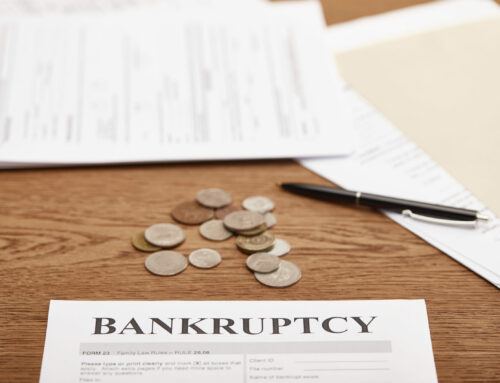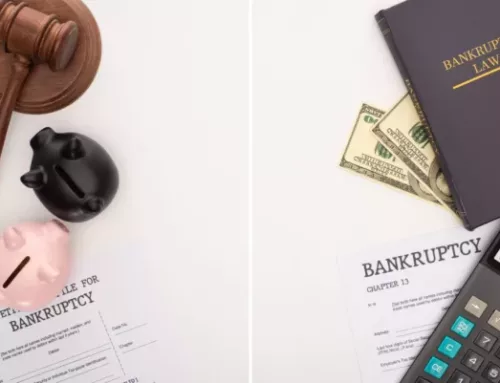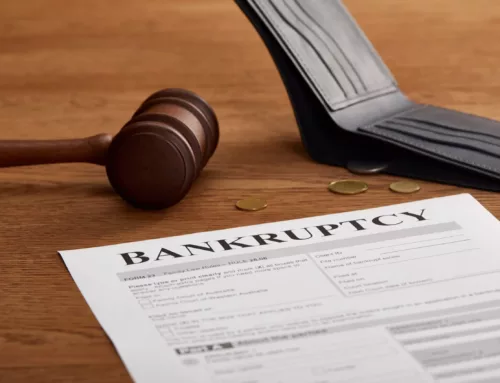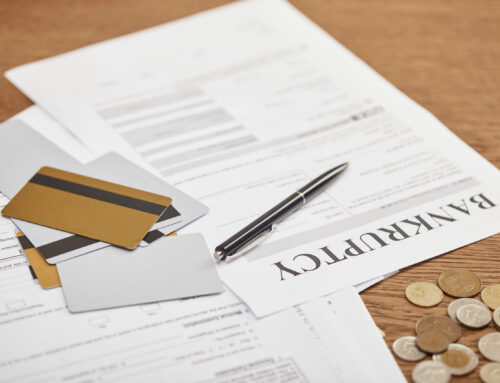Unmasking the Truth – Debunking the Top Bankruptcy Exemption Myths
Bankruptcy exemptions are a vital aspect of the bankruptcy process, providing individuals with the opportunity to protect certain assets and regain financial stability. However, misconceptions about bankruptcy exemptions can lead to misunderstandings and missed opportunities.
At Rollins Law Firm, we understand the complexities of bankruptcy law and the importance of accurate information when facing financial challenges. With our experience and dedication, we strive to provide individuals with the clarity they need to make informed decisions about their financial future.
In this article, we will debunk the most common misconceptions about bankruptcy exemptions and shed light on the truths that lie beneath the surface.
Misconception 1: Bankruptcy Exempts All Assets
Bankruptcy does not exempt all assets from being used to pay off debts. While bankruptcy laws vary between jurisdictions, the general principle is that a debtor’s assets are subject to liquidation or used to repay creditors to the extent allowed by law. However, bankruptcy laws also typically include certain exemptions that protect some assets from being used to satisfy debts.
Bankruptcy exemptions vary widely depending on the jurisdiction and the type of bankruptcy filing. Some common exemptions include a certain amount of equity in a primary residence, a vehicle of a certain value, personal belongings like clothing and household items, and tools necessary for a person’s trade or profession. These exemptions are intended to allow debtors to maintain a basic standard of living and have the means to start anew after bankruptcy.
Misconception 2: Bankruptcy Exemptions are the Same in Every State
Bankruptcy exemptions vary significantly from state to state. While there are some federal bankruptcy exemptions available, each state has the authority to establish its own set of exemptions that debtors can use when filing for bankruptcy.
In the United States, bankruptcy law allows states to opt out of federal bankruptcy exemptions and instead provide their own exemption systems. This means that the exemptions available to debtors can vary widely depending on the state in which they reside.
Some states have what is known as “opt-out” states, where debtors can only use the state’s exemptions and are not eligible to use federal exemptions. Other states have “opt-in” states, where debtors can choose between the state’s exemptions or the federal exemptions. In “opt-in” states, debtors must meet certain residency requirements to use the state exemptions.
It is crucial for individuals considering bankruptcy to consult with a bankruptcy attorney who is familiar with the laws of their specific state. An attorney can provide guidance on the available exemptions and help individuals understand how they will impact their particular financial situation.
Misconception 3: Bankruptcy Exemptions Eliminate All Debts
Bankruptcy exemptions do not eliminate all debts. While bankruptcy can provide debt relief by discharging or reducing certain types of debts, not all debts are eligible for discharge. And bankruptcy exemptions primarily protect assets rather than eliminating debts.
Chapter 7 and Chapter 13 bankruptcy are the two most common forms of bankruptcy filed by individuals in the United States. In a Chapter 7 bankruptcy, certain types of unsecured debts, such as credit card debt and medical bills, may be discharged, meaning the debtor is no longer legally obligated to repay those debts. However, some debts are generally non-dischargeable, including certain tax debts, student loans (in most cases), child support, alimony, and debts resulting from fraudulent activities or willful injury to another person.
In a Chapter 13 bankruptcy, the debtor enters into a repayment plan to repay all or a portion of their debts over a three to five-year period.
Misconception 4: Bankruptcy Exemptions Guarantee the Retention of All Property
Bankruptcy exemptions provide a means to protect certain types and amounts of property from being liquidated to repay debts, but they do not guarantee the retention of all property. The scope and extent of the exemptions vary depending on the jurisdiction and the specific bankruptcy laws applicable to the case.
While bankruptcy exemptions allow individuals to retain essential assets necessary for a fresh start, there are limits to the protection they provide.
Misconception 5: Bankruptcy Exemptions Are A Quick Fix for Financial Problems
Bankruptcy exemptions can provide relief for individuals struggling with overwhelming debt, but they are not a quick fix for financial problems. Filing for bankruptcy is a complex legal process that requires careful consideration and planning.
Here are some important points to understand:
- Legal Process: Bankruptcy involves filing a petition, providing detailed financial information, attending court hearings, and complying with various legal requirements. It is not a simple or immediate solution.
- Credit Consequences: Bankruptcy has long-term effects on creditworthiness. It remains on credit reports for several years and can make it challenging to obtain credit or secure favorable terms in the future.
- Financial Management: Bankruptcy does not address the underlying causes of financial problems. It is crucial to assess and address spending habits, budgeting, and financial management to avoid similar situations in the future.
- Non-Dischargeable Debts: Some debts may not be discharged through bankruptcy, such as certain tax debts, student loans, child support, alimony, and debts resulting from fraudulent activities or willful injury to another person. These debts continue to be an ongoing obligation.
- Emotional Impact: Bankruptcy can be emotionally challenging. It may involve surrendering certain assets, and the process can be stressful and emotionally draining.
Before considering bankruptcy, it is advisable to explore other options such as negotiating with creditors, debt consolidation, credit counseling, or working out a repayment plan. Consulting with a bankruptcy attorney can provide guidance on the best course of action based on your specific circumstances.
Understanding Bankruptcy Exemptions in Mississippi
The bankruptcy exemptions in Mississippi are governed by state law and provide a list of assets that debtors can protect when filing for bankruptcy.
- Homestead Exemption: Mississippi offers a homestead exemption that protects the equity in a debtor’s primary residence. The exemption amount varies depending on the county where the property is located.
- Motor Vehicle Exemption: Debtors in Mississippi can exempt up to a certain amount of equity in a motor vehicle.
- Public Benefits: Public benefits, including Social Security, unemployment compensation, and veterans’ benefits, are generally exempt from bankruptcy proceedings.
- Wildcard Exemption: Mississippi allows a wildcard exemption that can be applied to any property.
- Personal Property: Mississippi provides exemptions for various types of personal property, including household goods, clothing, tools of trade, health aids, burial plots, life insurance, and retirement accounts
This is not an exhaustive list, and there may be additional exemptions available under Mississippi law. Moreover, specific circumstances and eligibility criteria may apply. To ensure accuracy and obtain the most current information, it is recommended to consult with a bankruptcy attorney who is familiar with Mississippi’s exemption laws.
Learn More About The Most Common Misconceptions About Bankruptcy Exemptions
If you find yourself entangled in the complexities of bankruptcy exemptions or have concerns about protecting your assets during the bankruptcy process, turn to Rollins Law Firm for reliable legal guidance.
Our attorneys are experienced in bankruptcy law and are well-versed in addressing the intricacies surrounding exemptions. We offer personalized consultations to assess your unique circumstances and provide tailored solutions to your specific needs. Rollins Law Firm can also assist you with other legal issues from personal injury, social security, and worker’s compensation.
Don’t let misconceptions hold you back—take the first step towards a brighter financial future by contacting Rollins Law Firm today.








Connect with Us